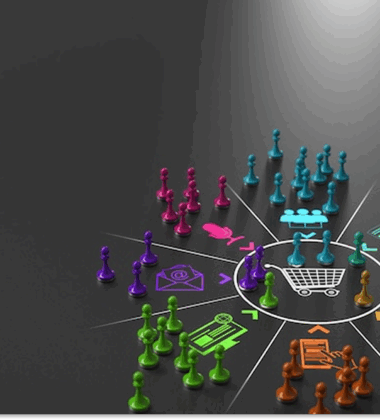The Global Products Expo, set to take place from June 26–28, 2025, at the New Jersey Expo Center, will gather thousands of food innovators, buyers, and manufacturers from across the globe. As brands prepare to showcase their offerings, one factor has become a key differentiator in gaining consumer trust: food certification labels.
From organic and non-GMO to halal, kosher, and vegan, certifications are no longer optional—they’re expected. But what do these labels really mean to consumers? And how can exhibitors use them to build brand credibility and increase sales?
Let’s explore how food certifications have evolved, what they signal to buyers, and how they’re shaping the food and beverage industry.
Why Food Certifications Matter More Than Ever
Today’s consumers are more informed and intentional about their food choices than previous generations. Whether they’re following a plant-based diet, shopping sustainably, or navigating food allergies, certifications help them quickly identify brands they can trust.
According to a 2024 Nielsen study:
- 73% of global consumers say certifications increase their likelihood to purchase
- 62% actively seek certification labels when shopping for new products
- Over 80% of Gen Z and Millennial shoppers use certifications as a proxy for brand values
At expos like the Global Products Expo, where hundreds of products compete for attention, certified labels act as visual trust signals, helping your booth stand out and your products resonate.
Common Food Certification Labels and What They Mean
Understanding the key food labels and what they communicate can help your brand position itself strategically:
Organic
- USDA Certified Organic means no synthetic pesticides, fertilizers, or GMOs were used.
- Indicates environmental responsibility and clean farming practices.
- Appeals strongly to health-conscious consumers and families.
Non-GMO Project Verified
- Ensures ingredients are not genetically modified.
- Especially important in processed and packaged food categories.
Halal
- Products that comply with Islamic dietary laws.
- Gaining traction beyond religious consumers, especially in global markets like the Middle East and Southeast Asia.
Kosher
- Denotes food that meets Jewish dietary standards.
- Also often perceived as cleaner and more strictly regulated.
Vegan / Plant-Based
- Free from any animal products or byproducts.
- Essential for vegan consumers and those with lactose intolerance.
Gluten-Free Certified
- Ensures compliance with FDA gluten limits (<20 ppm).
- Trusted by people with celiac disease and gluten sensitivities.
These labels not only reflect dietary needs but also symbolize a brand’s ethical and environmental stance.
How Certifications Influence Buying Decisions
Certification labels serve as shortcuts in decision-making. When time is limited—like at a trade show or retail aisle—consumers don’t have time to research every ingredient. Labels like “USDA Organic” or “Certified Vegan” immediately communicate value.
Certifications also:
- Reduce perceived risk
- Enhance product credibility
- Reinforce brand values
- Differentiate you from uncertified competitors
In fact, certified products are often priced higher yet preferred more, because they’re seen as premium, ethical, or safer.
How to Leverage Certifications at the Global Products Expo
1. Make Labels Visible
Use bold packaging, signage, and banners at your booth to highlight your certifications. Attendees should see these credentials from a distance.
2. Educate Your Audience
Not all buyers understand what certifications mean. Train your booth staff to explain the benefits behind each label and how your certification aligns with consumer needs.
3. Create Educational Materials
Use flyers, QR codes, or digital displays to share your certification process. This builds transparency—something modern consumers deeply value.
4. Use Certifications as a PR Angle
Pitch your certifications to industry media attending the expo. Feature them in your marketing materials, investor decks, and social media countdowns leading up to the show.
Challenges and Tips for Getting Certified
Obtaining certifications can be complex—but it’s worth the investment. Here are a few key tips:
- Start Early: Certification processes often take months and require inspections, documentation, and testing.
- Choose the Right Certifiers: Stick with globally recognized certifiers like USDA, Non-GMO Project, or Vegan.org.
- Keep Your Paperwork Ready: During expos, buyers may ask for documentation or proof of certification—have that available digitally.
Future Trends: Certifications Are Getting Smarter
With the rise of blockchain technology and QR-code packaging, certifications are becoming more interactive and verifiable in real-time. Expect to see:
- Dynamic labeling that links to supply chain data
- Smart packaging that updates sourcing or inspection info
- Integration with apps for live ingredient traceability
As consumers seek deeper transparency, technology will help brands not only prove authenticity but also tell compelling stories about their ingredients and ethics.
Final Thoughts
As the food and beverage industry continues to evolve, certification labels have become much more than just regulatory stamps—they are branding tools, trust signals, and value statements.
If you’re exhibiting at The Global Products Expo, taking place from June 26–28, 2025, at the New Jersey Expo Center, now is the time to evaluate your certifications. Whether you’re launching a new product or expanding to new markets, the right labels can help you connect with conscious consumers, build credibility, and ultimately drive more conversions.
Stay Connected for More
Looking for more strategies to make your brand stand out at expos? Subscribe to our insights or check out the full content library to get expert tips on food marketing, event prep, and certification trends.





